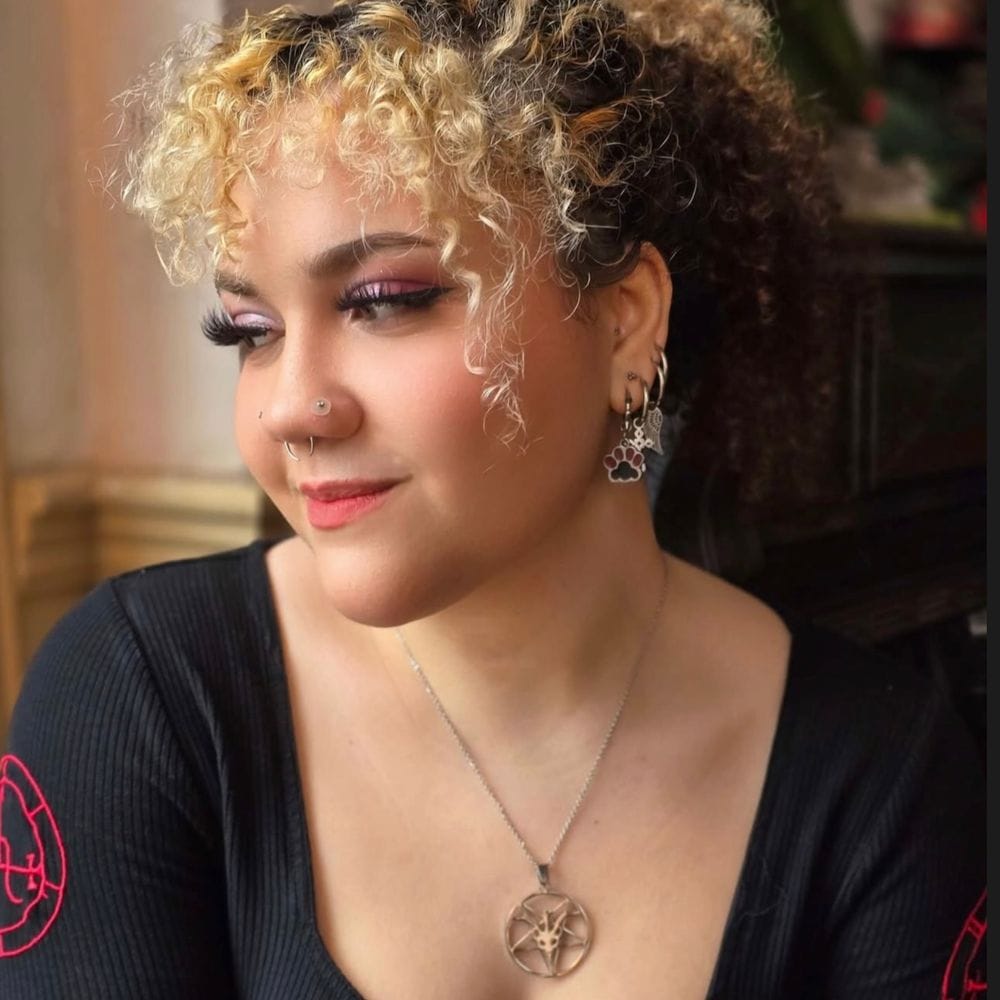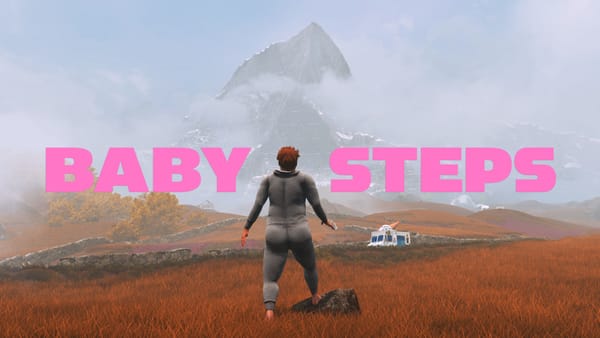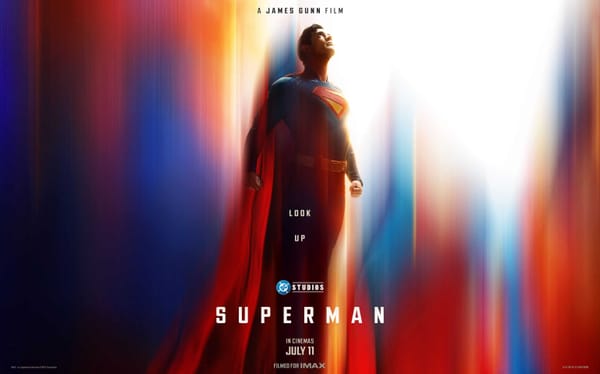Interview : Maezza Romero on Community Management at Romero Games

Back in February, I had the opportunity to attend the FÍS Games Summit in Galway, Ireland. I’ve covered the bulk of my trip already but haven’t written up all of the talks and other things I took part in that day. In light of Romero Games’s recent troubles, I decided to return to the interview I held with their community manager. This interview has been edited for clarity. Enjoy!
Maezza Romero : So just for context, I know I would’ve said it in the [marginalised genders networking] roundtable, but I’m a game developer at Romero Games. I’ve been doing it for about five years now and I’ve worked across two projects now; both of which have been AAA and both of which have required extensive community management. And basically my work focuses on diversity in gaming communities, promoting diversity, keeping people safe and seeing how we can make game communities just be as safe as possible for everyone. That’s my focus.
Memory Card : What kind of spaces are you managing?
MR : Really anything you can think of. I’m managing the Discord that we have, which is about 8000 people now; our TikTok, which is about 11,000, no 12,000 as of the last hour; Instagram, really any social media platform. Also, when games come out, post-launch I manage whatever community platforms come out of those. I do community events, I do livestreaming. So any sort of communication with gamers, I would be handling that.
MC : You have to deal with a lot of fan and press enquiries. What sort of challenges do you have with that on the fan end?
MR : Well, one of the greatest challenges I’d say in any community is getting people interested in what we care about. That can be quite difficult, finding exactly what it is they care about, what they stay around for and making sure that the content isn’t too overloading, but is also enough to keep them engaged.
The big challenge I’m currently going through is I’m basically marketing a game that doesn’t exist yet. It does exist, it’s in development, but it’s not a physical product or even a digital product. It’s nothing anyone can see at the moment. So I’m essentially having to figure out “How can I market the thing without people knowing that I’m marketing it to them?”
We have a really dedicated audience of first person shooter fans – it goes without saying because of Doom and Quake and Wolfenstein. Boomer shooter fans are primarily what we are catering to. And part of what I’m doing at the moment is figuring out what keeps them interested as well as keeping them engaged indirectly. The big challenge of that is figuring out what these two audiences – of course I can’t say the other audience yet. The FPS audience and this other audience are different in what they prefer and what they like. Bridging that gap between the two without anything to show to do it I’d say would be one of the greatest challenges of development.
MC : It does sound hard because Romero Games is in the shadow of Doom and Quake like you said.
MR : Largely speaking at the moment our community is piggybacking off of that retro nostalgia feeling. So part of what I do is figure out “What is the nostalgia thing, what does that mean in the form of content? What is it in the form of engagement? How can we communicate with the new thing that we don’t know how to market yet?” That took a long time and I’m still working on it but it would be primarily a mix of different generations but generally speaking a lot of them are interested in Doom and Quake and Wolfenstein and so on, which is fortunate for us making a first person shooter.
MC : Has Romero Games released any games yet?
MR : In terms of releases, John [Romero] does do levels called Sigil. These are extra levels, these are free WADs [Where’s All the Data?; packages of levels or graphics that can be modded into Doom]. He created those on his own and we published those as free WADs but then we put them in big boxes. So those games we published.
We also previously published Empire of Sin with Paradox Interactive, that was our other title, but at the moment FPS are our primary focus and we’ve been developing this game for quite some time now. We’ve expanded our team in all our roles massively and we’re really excited about it, it’s going to be cool. It’s very ambitious, it’s very true to our roots and it requires a massive team to build. We have a massive team and they’re all incredibly talented, they’ve all been working together so long.
MC : The company is called Romero Games. John Romero does livestreams, he shows his work on Sigil, but it’s a big team. How do you make people aware of the team? I assume not everyone wants the spotlight on them but how do you make sure people keep in mind that it isn’t just John Romero making everything?
MR : It’s absolutely important and true of any studio that has someone whose name is obviously attached to the company and who people will thank for a game that was the foundation of an entire genre. In terms of keeping the team at the front of everything, I start off by asking for consent to appear on camera and most of the team fortunately has been really happy to be a part of that. A lot of that comes in highlighting the careers that we’re hiring for and the places that we work across. Letting people know that we’re growing, that it’s not just John, it’s not just a page for John, we’re an active team who are creating a game.
On top of that, I share what I can about our development cycle : “Hey, so here’s what we know about it, what you know about it, what we can tell you about it at the moment.” Also I’ve been really fortunate in that our team loves to take pictures of each other! If you went on our Instagram there’s a bunch of different pictures of the art team and other teams. We’re actually going to be starting to do Q&As with developers soon because we’re currently figuring out ways that we can highlight them better. Part of that will be interviews, filming them and stuff. We’re involving the team as much as possible.
I do say that it’s easier after launch to do this kind of thing because you can more easily ask a designer or a QA person to play the game on a stream and then talk about their expertise. But given where we are in the game at the moment, it’s a little bit of a balancing act of “people really like seeing John, love seeing content of him” and “they should also love seeing content of the team”. It’s about balancing the two of them in an engagement strategy of “How do we do this thing and this thing at the same time?”

MC : Romero Games is based in Galway. This event is in Galway of course. How has Romero Games helped to foster or been a part of the local development community?
MR : We’ve been everywhere really. From the start, Brenda and John came here because they saw the incredible opportunity that existed, the existing group of Irish game developers who were just creating awesome stuff, really cool stuff. The talent in the West of Ireland is without a doubt just incredible, across all of Ireland but you know, events like this in the West of Ireland were great.
Since the start of moving here, they’ve been a part of events like Ardán. We have Tom [Hall, Design Lead at RG] speaking today. He’s going to be speaking about his own stuff. We try to participate as much as possible in the local game dev scene. I myself do workshops and talks in Galway. I recently helped out with the Ardán Wild Games Incubator, where I was giving advice to students in that program about how they can manage their social media, what to do, where to get started.
We really try to feed back as much as possible into the Irish game dev scene because it’s incredible. Part of that is sharing knowledge, talking with each other about what we can learn from each other and also just being close. I think a really great thing about the Irish game dev scene is that it is so easy to do that because everyone kind of knows each other anyway, events happen and it’s great. It’s mostly that we’ve always tried to prioritise our involvement in the Galway game dev scene, the Irish game dev scene across the board. There are so many conferences that Brenda and John appear at so we just try our best in between the demands of development, I suppose.
MC : I also wanted to ask about the nature of Romero Games being a hybrid studio. There are some people who are local to Galway, there are also people around the world with the studio. I wanted to ask about how people are able to connect at the company when they’re remote, from your perspective as a community manager.
MR : COVID was one of those things that was devastating in a lot of ways but also great in some ways, in terms of learning how to work better together. Part of that was learning how to work hybridly and engaging with people online. We worked from home like everybody else for the longest time and by the time it came to switching to the office, we’d actually spread our team in a lot of different areas, across different countries and these people were genuinely really talented.
We hire primarily if not entirely EU talent just because of timezones – America can be hard, as with Canada and things – but we have people based in Germany, Spain, all kinds of places. It’s been a really unique experience I think. Our art team is incredible and a lot of them do work online, but I think it’s just a lot of us are used to being online because of the nature of our job. Especially since COVID it’s almost second nature to be in meetings with people online.
I don’t see myself especially as a community person working online all the time – I am so used to communicating online that I’ve never had an issue with hybrid working – and I think it’s great. It gives people the opportunity to – we even have this on our website – to do their best work wherever their best place is. If that best place is with a child at home, then fair enough. If their best place is just being at home in their home country, then that’s fair enough. I think Romero Games represents a really unique opportunity for people who might not want to leave those places. Of course relocation is always an option, and preferable in some cases, but generally speaking sometimes people do their best work in other places and that’s fine, so long as they’re showing up and they’re doing great work – which they are – there’s been no issue with it.
I’d like to thank Maezza again for her time and her patience with my on-the-spot interview without due prep. Romero Games is currently looking for a publisher for their unannounced FPS that had its funding cut and I wish the very best for the entire team.
If you liked this article or anything from Memory Card, consider supporting me on Patreon or with a one-time donation on Ko-Fi. You can follow me on BlueSky if you want to, and of course make sure to sign up for the newsletter if sent this by a friend or foe. See you next time!


